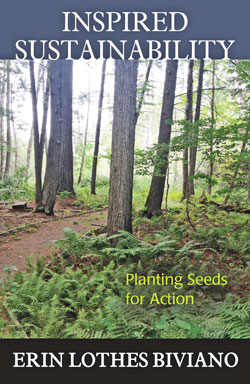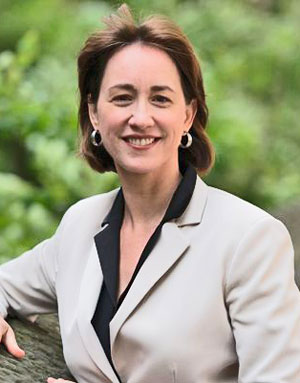Theologian Dr. Erin Lothes, an author on topics related to sustainability and energy ethics, will discuss Pope Francis’ recent encyclical on climate change at the annual lecture of the University of St. Thomas’ Institute for Catholicism and Citizenship.
The lecture, free and open to the public, will be held Wednesday, May 4, at 7 p.m. in the James B. Woulfe Alumni Hall of Anderson Student Center on the St. Paul campus of the University of St. Thomas.
Lothes, a member of the theology faculty at the College of St. Elizabeth in New Jersey, will speak on “The Church of Pope Francis: Theological and Practical Responses to Laudato Si’.”
She will address the significance of this encyclical and particularly address magisterial teaching regarding energy ethics, as well as the inspiration for faith-based environmentalism across faith traditions.
Lothes holds a Ph.D. in systematic theology from Fordham University and from 2007-10 was a Columbia University Earth Institute Fellow, an interdisciplinary postdoctorate program in sustainability studies.
 Her book, Inspired Sustainability: Planting Seeds for Action, is being released this month; in it she analyzes the insights of activists and scholars who are deeply committed to environmental sustainability.
Her book, Inspired Sustainability: Planting Seeds for Action, is being released this month; in it she analyzes the insights of activists and scholars who are deeply committed to environmental sustainability.
She also coordinated the Discipleship and Sustainability Interest Group of the Catholic Theological Society of America, which produced the article “Catholic Moral Traditions and Energy Ethics for the 21st Century” that was published in the Journal of Moral Theology.
In addition to the Institute for Catholicism and Citizenship, the annual lecture is co-sponsored by St. Thomas’ College of Arts and Sciences and its theology, biology, environmental studies and environmental science programs, and the GALE Office of Sustainability Initiatives.
The Institute for Catholicism and Citizenship, which just celebrated its first anniversary, was established to “promote civil discourse, faithful citizenship and the common good by fostering theological insight and interdisciplinary inquiry into economic, political and social issues.”
More information about the lecture can be found at this website.







